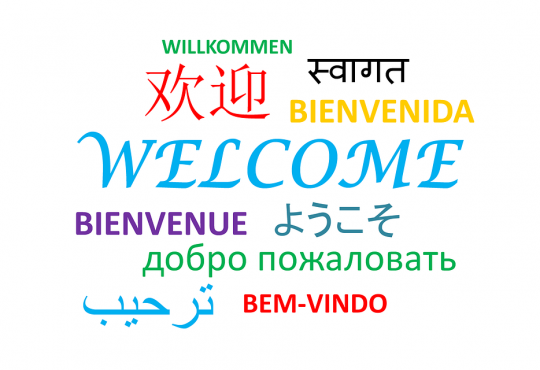A new version of the Oxford English Dictionary (OED) came out this March, containing almost a quarter of a million words.
Avid dictionary readers may notice a few unusual entries.
According to the OED’s website, the words “bestie” (noun), “wackadoodle” (noun or adjective) and “badassery” (noun) all joined the esteemed ranks of the dictionary this year.
They owe their recognition as legitimate words in the English language to the explosion of Internet lingo.
There are those, however, who believe that modern slang is ruining the English language.
These people could correctly be called “haters” (noun: one who hates, also known as a player-hater), but their concerns are legitimate.
As new words and idioms replace old ones, how does the evolution of language impact what we consider “proper” language?
In the age of extreme shorthand, has “proper” English, and the professionalism that accompanied it, been lost?
The answer is no.
These people need to “chill” (verb: to relax, to calm oneself). While it is true that the English language is undergoing a huge transformation, one should realize that the English language—and any language, for that matter—is always undergoing a huge transformation.
No one complained when Shakespearean English was phased out.
Even before that, Shakespeare himself changed language by inventing quite a few “newfangled” words (“newfangled” first appeared in his play As You Like It).
The rise of Internet slang is no different than our old friend the Bard playing with new combinations of letters.
English is also one of the fastest-evolving languages in the world.
A study done by the National Science Foundation showed that while Japanese from 1000 years ago is still mostly comprehensible to modern readers, English from a few centuries ago radically shifted.
“Modern slang isn’t stupid, it just depends on what context it’s used in,” freshman Anna Joseph said.
“Like if you’re with friends, just casual, it’s more adaptable and you can use it; but if you’re in a business interview, you don’t want to say YOLO. That makes you sound a bit unprofessional.”
Language is a fluid concept; like humans themselves, it constantly changes and adapts.
A language that constantly stays the same is stagnant and unsuitable for application in a world where new ideas need new words and ways of speaking about them.
“Frequently, the needs of speakers drive language change. New technologies, industries, products and experiences simply require new words,” Nicole Mahoney of the National Science Foundation wrote.
“By using new and emerging terms, we all drive language change. Through our interactions, we pick up new words and sayings and integrate them into our speech. Teens and young adults for example, often use different words and phrases from their parents. Some of them spread through the population and slowly change the language.”
One example of a positive language change was in June 2013 when the OED added the word “trans” to the dictionary in the sense of gender identity, not just “across” as it was defined before.
Not only was “trans” added, but also “transwoman,” “transman” and “transperson”—as well as “transphobia.”
The addition of words like these reflects the increasing visibility of a variety of issues that have gained recognition in recent years.
Slang might corrupt the old, but it reflects the new.
Yes, it might be a little ridiculous to see “mani-pedi” in the dictionary (noun: a beauty treatment comprising both a manicure and a pedicure), but slang also reveals the personality of a new generation of speakers.
“When it’s appropriate, slang is fine. I go through phases of using different words,” Joseph said.
“Once in a while I use ‘hella.’ Sometimes, once in a while, I even use ‘yo.’ I think, after all, slang can be adapted into our culture.”

